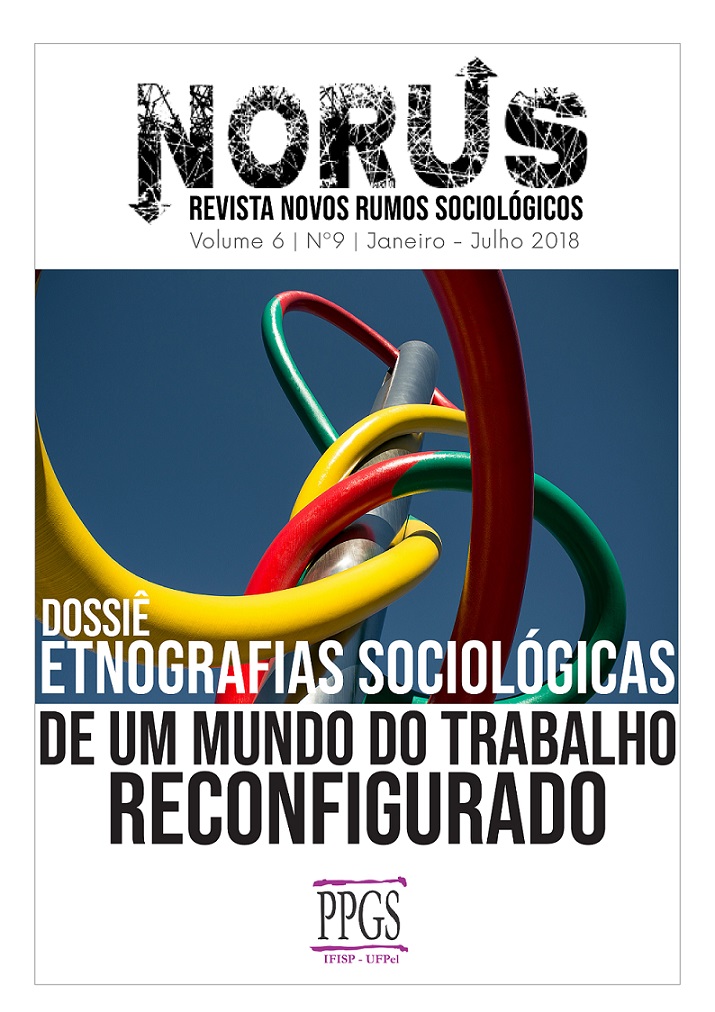TRABALHO E PRODUÇÃO ASSOCIADA AO TURISMO
TENSÕES E RUPTURAS NO PROCESSO DE CONSTRUÇÃO DA IDENTIDADE DE MULHERES NA COMUNIDADE RURAL CHÃ DE JARDIM
Abstract
This article to discuss on work as a moral value for the “peasants” [small landowners], in their articulation with the dynamics of reciprocity and the hierarchization of social relations. This paper is based on a doctoral thesis from the same author. The general aim is to analyze the reinterpretation of work practices based on the participation of women 'peasants' in the development of tourism in the city of Areia – state of Paraíba. The data presented were based on the ethnography of the Chã de Jardim community and semi-structured interviews with 30 'peasants' between September 2015 and March 2016. On the theoretical level the privileged interlocutors are: Klass Woortmann, Cynthia Andersen Sarti, Marcos P. D. Lanna and Marcel Mauss. The results indicate that women are protagonists in the work with tourism, occupying most positions and even the community leadership, which has allowed them to have more social recognition and raise self-esteem. However, the work of women is perceived and still conceived as "help" (complementary), being subordinated to the satisfaction of the family and maintenance of the hierarchical structures established. Although it does not indicate a definitive rupture with the family peasant structure, the experience of working with tourism reveals the search for valorization and autonomy of women, as well as the tensions and contradictions involved in this process.


